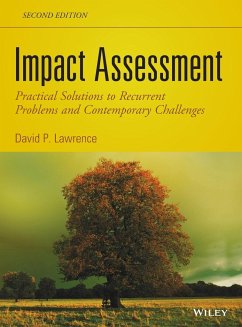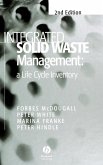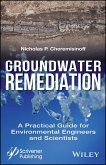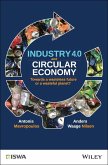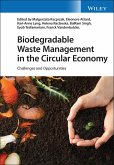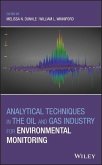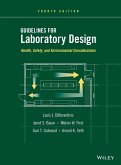Taking a problem-oriented approach, Environmental Impact Assessment provides an in-depth, practical, and comprehensive guide for designing and implementing effective Environmental Impact Assessment (EIA) processes. Easily adaptable for application in other jurisdictions, this thoroughly updated second edition addresses a much broader range of practice-related problems, issues, and challenges in EIA. The text also includes a new set of practice-based stories to provide a real-world context for the conceptual and applied analyses. End-of-chapter checklists provide a handy tool for structuring the design and evaluation of EIA processes and documents.
Offers solutions and best practices to respond to recurrent problems and contemporary challenges in the field
Since the publication of the first edition of Environmental Impact Assessment in 2003, both the practice and theory of impact assessment have changed substantially. Not only has the field been subject to a great deal of new regulations and guidelines, it has also evolved tremendously, with a greater emphasis on strategic environmental, sustainability, and human health impact assessments. Moreover, there is a greater call for impact assessments from a global perspective. This Second Edition, now titled Impact Assessment to reflect its broader scope and the breadth of these many changes, offers students and practitioners a current guide to today's impact assessment practice.
Impact Assessment begins with an introduction and then a chapter reviewing conventional approaches to the field. Next, the book is organized around recurrent problems and contemporary challenges in impact assessment process design and management, enabling readers to quickly find the material they need to solve tough problems, including:
How to make impact assessments more influential, rigorous, rational, substantive, practical, democratic, collaborative, ethical, and adaptive
How each problem and challenge-reducing process would operate at the regulatory and applied levels
How each problem can be approached for different impact assessment types-sustainability assessment, strategic environmental assessment, project-level EIA, social impact assessment, ecological impact assessment, and health impact assessment
How to link and combine impact assessment processes to operate in situations with multiple overlapping problems, challenges, and impact assessment types
How to connect and combine impact assessment processes
Each chapter first addresses the topic with current theory and then demonstrates how that theory is applied, presenting requirements, guidelines, and best practices. Summaries at the end of each chapter provide a handy tool for structuring the design and evaluation of impact assessment processes and documents. Readers will find analyses and new case studies that address such issues as multi-jurisdictional impact assessment, climate change, cumulative effects assessment, follow-up, capacity building, interpreting significance, and the siting of major industrial and waste facilities.
Reflecting current theory and standards of practice, Impact Assessment is appropriate for both students and practitioners in the field, enabling them to confidently respond to a myriad of new challenges in the field.
Hinweis: Dieser Artikel kann nur an eine deutsche Lieferadresse ausgeliefert werden.
Offers solutions and best practices to respond to recurrent problems and contemporary challenges in the field
Since the publication of the first edition of Environmental Impact Assessment in 2003, both the practice and theory of impact assessment have changed substantially. Not only has the field been subject to a great deal of new regulations and guidelines, it has also evolved tremendously, with a greater emphasis on strategic environmental, sustainability, and human health impact assessments. Moreover, there is a greater call for impact assessments from a global perspective. This Second Edition, now titled Impact Assessment to reflect its broader scope and the breadth of these many changes, offers students and practitioners a current guide to today's impact assessment practice.
Impact Assessment begins with an introduction and then a chapter reviewing conventional approaches to the field. Next, the book is organized around recurrent problems and contemporary challenges in impact assessment process design and management, enabling readers to quickly find the material they need to solve tough problems, including:
How to make impact assessments more influential, rigorous, rational, substantive, practical, democratic, collaborative, ethical, and adaptive
How each problem and challenge-reducing process would operate at the regulatory and applied levels
How each problem can be approached for different impact assessment types-sustainability assessment, strategic environmental assessment, project-level EIA, social impact assessment, ecological impact assessment, and health impact assessment
How to link and combine impact assessment processes to operate in situations with multiple overlapping problems, challenges, and impact assessment types
How to connect and combine impact assessment processes
Each chapter first addresses the topic with current theory and then demonstrates how that theory is applied, presenting requirements, guidelines, and best practices. Summaries at the end of each chapter provide a handy tool for structuring the design and evaluation of impact assessment processes and documents. Readers will find analyses and new case studies that address such issues as multi-jurisdictional impact assessment, climate change, cumulative effects assessment, follow-up, capacity building, interpreting significance, and the siting of major industrial and waste facilities.
Reflecting current theory and standards of practice, Impact Assessment is appropriate for both students and practitioners in the field, enabling them to confidently respond to a myriad of new challenges in the field.
Hinweis: Dieser Artikel kann nur an eine deutsche Lieferadresse ausgeliefert werden.
"It highlights all aspects of IA that should be considered or understood before trying to complete an assessment, and for this reason, it will very likely become a 'go-to' reference text for the IA community around the world." (Impact Assessment and Project Appraisal, 3 July 2014)
"Overall, Impact Assessment: Practical Solutions to Recurrent Problems and Contemporary Challenges provides a thorough discussion of some of the key problems and challenges represented in impact assessment research and practice. Specifically aimed at practitioners, this text allows for those already with a basis in impact assessment theory and practice to consider problems and challenges, and possible responses in detail." (Journal of Environmental Assessment Policy and Management, 1 March 2014)
"Overall, Impact Assessment: Practical Solutions to Recurrent Problems and Contemporary Challenges provides a thorough discussion of some of the key problems and challenges represented in impact assessment research and practice. Specifically aimed at practitioners, this text allows for those already with a basis in impact assessment theory and practice to consider problems and challenges, and possible responses in detail." (Journal of Environmental Assessment Policy and Management, 1 March 2014)

